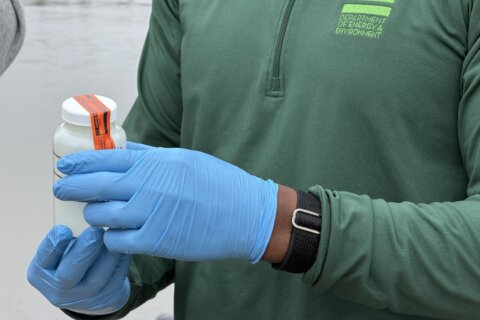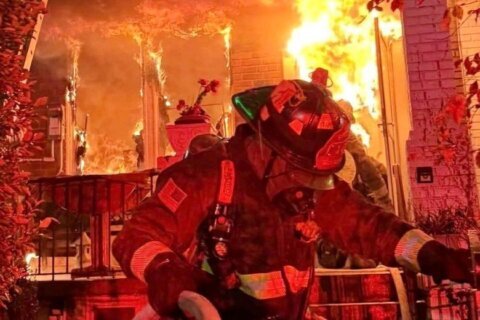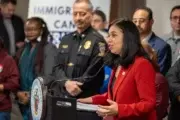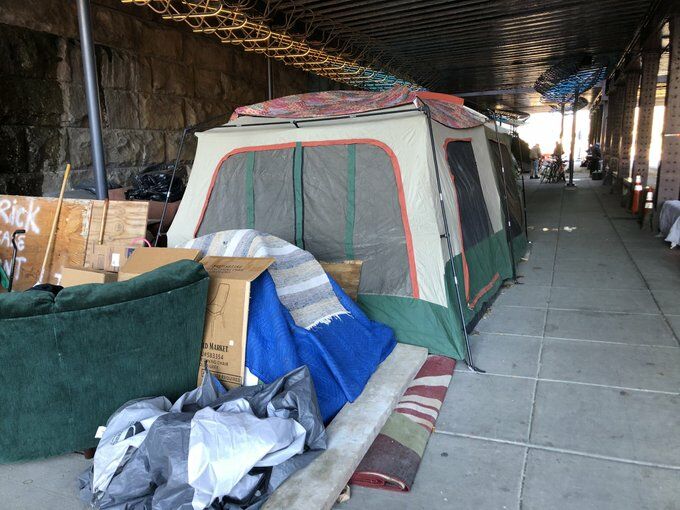
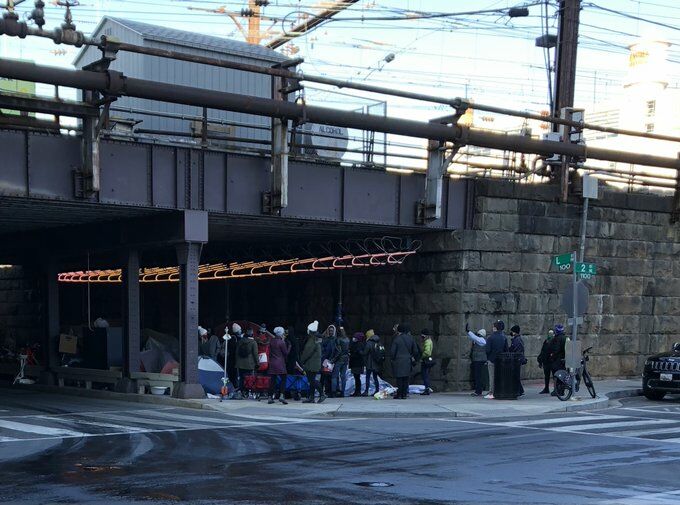
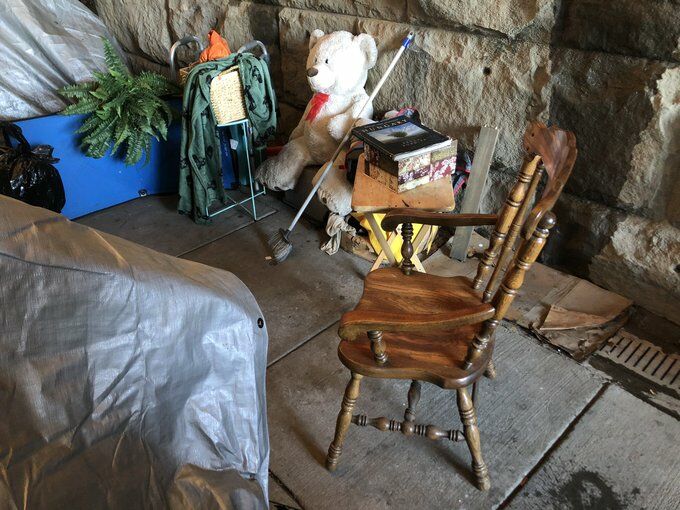
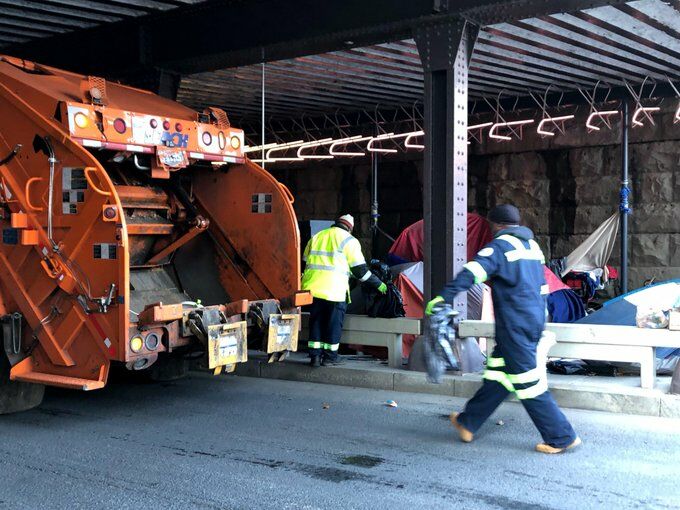
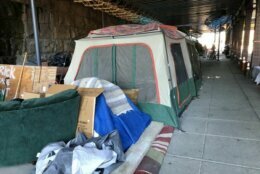
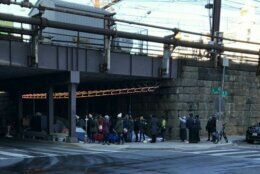
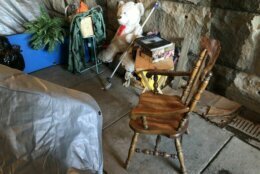
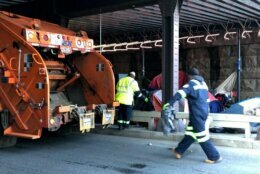
The D.C. Public Works Department cleaned sidewalks at a homeless encampment in Northeast Tuesday morning.
The original plan called for tents to be temporarily moved to allow for cleaning, but that part was called off owing to the frigid weather.
Several dozen volunteers monitored and helped with the process, so as to make sure personal belongings of residents didn’t get thrown away.
One of them, Henry Sullivan, a recent Gonzaga High School graduate and associate of the school’s Peace Club, said he has been working with the encampment community handing out COVID-safety supplies. On Tuesday, he was part of a group overseeing the clearance.
He said that signs had been posted alerting people living in the encampment on L and M streets they would have to move their shelters and belongings at least 200 feet so workers could clean sidewalks and remove trash.
However, because of the ongoing hypothermia alert in the District, DPW cleaned trash, but tents didn’t have to be moved
While residents didn’t have to disassemble their tents Tuesday, during warmer weather the process is unsettling: “It’s a cleanup. But it’s really traumatic to the encampment residents. … The tents can come back, but you can see that this is so disruptive.” He added that it went against the Centers for Disease Control and Prevention pandemic-safety guidelines.
Unlike the permanent eviction under the nearby K Street overpass several months ago, he said, the expectation was that people would move their tents back under the L and M street train overpasses after the cleaning process.
While there is enough space in D.C.’s homeless shelters to accommodate the residents, Sullivan said, “Some people have lived here for years.”
He added, “People are worried about going into the shelter” for pandemic safety reasons, “and a lot of folks I talked to here don’t want to go to the shelter, because they experience a lot of crime there. There are also women, [including] pregnant women, and they’ve experienced sexual assault in shelters.”
Many of the residents of the encampment were residents of the K Street community, Sullivan said.



